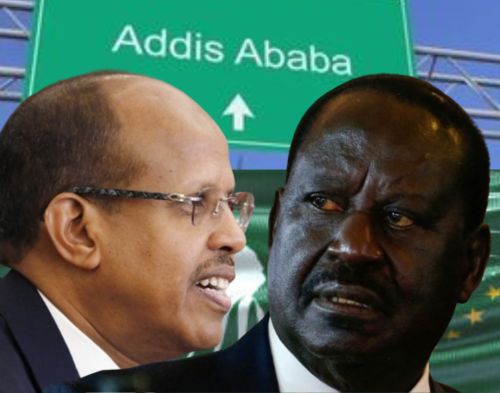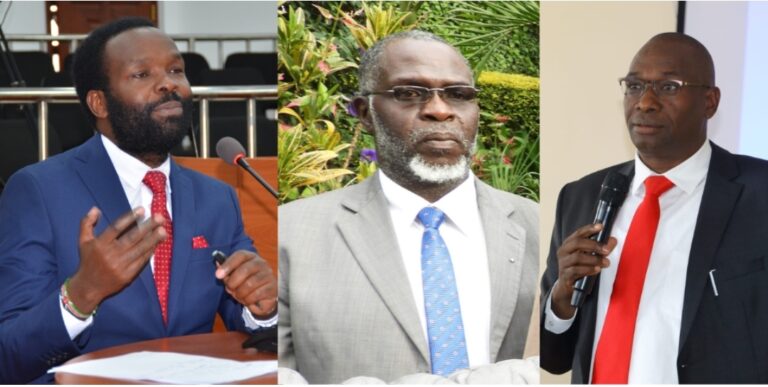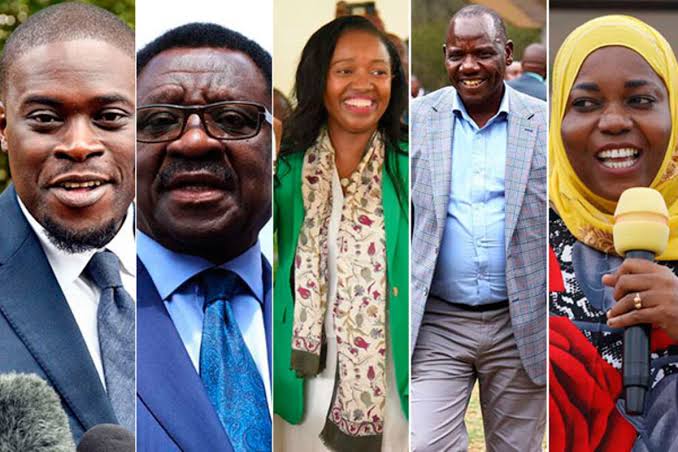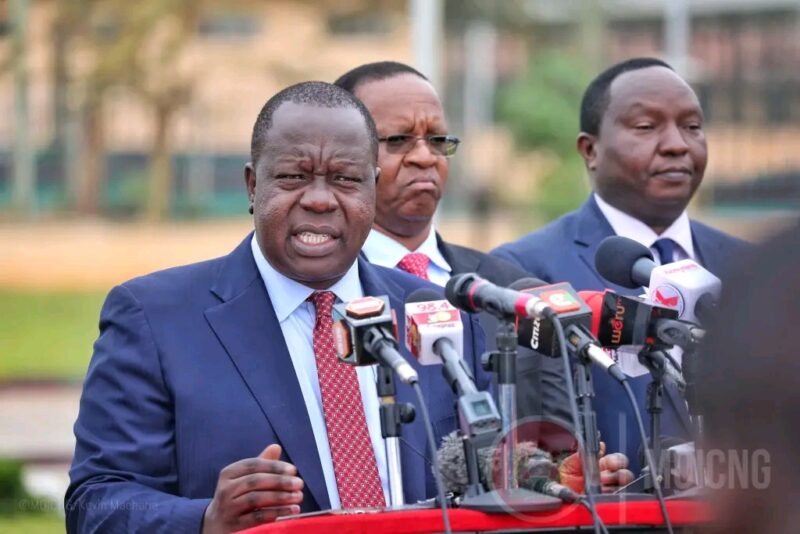Although Ugandan President Yoweri Museveni claimed to have told Djibouti’s Minister of Foreign Affairs Mahmoud Youssouf that he will vote for Raila Odinga, the minister is portrayed as his main opponent in the race for the chairmanship of the African Union Commission (AUC).
Speaking at the inauguration of Mr Odinga at the Nairobi State House, on Tuesday, Museveni revealed that Youssouf visited him to seek his vote but told him plainly that he would support the candidate from Kenya.
“Before starting the journey to come here, a young man from Djibouti visited me and told me that he is their candidate for this seat and that I should support him. Of course, I greeted him happily, we took pictures and drank tea,” he said.
“But I told him I was planning a trip to Kenya to support Raila because he is the best candidate for this job,” Elder Museveni explained. The president, who has been in power for 38 years, stressed that the position of AUC chairman requires a visionary, self-motivated person, with a broad understanding of issues concerning Africa and Africans.
Apart from Youssouf and Mr Odinga, the seat has also attracted the former Minister of Foreign Affairs of Mauritius Anil Guyan and the former Minister of Foreign Affairs of Madagascar Richard Randriamandrato. They are all planning to inherit the AUC seat after Moussa Faki Mahamat completes his term of service in January next year.
Experts Analysis
But experts on diplomacy and international relations warn that Youssouf is the main opponent of Mr Odinga in the race based on the criteria of language support. This is apart from other issues such as religion, age, interest politics between African nations and economic interests outside of this continent in America, European Union (EU) member states, Russia and Asian countries like China, expected to influence the decision of African presidents who will vote in Addis Ababa, Ethiopia.
Among the 54 African countries, English is widely spoken in 24 countries and French is used in 28 countries. In addition, the Arabic language, which together with the two languages, is one of the official languages of the African Union (AU), is widely spoken in almost 20 countries. The Kiswahili language is one of the official languages in AU.
According to the Lecturer in the Department of Diplomacy and International Studies at the University of Nairobi Kizito Sabala, a candidate who will be joined by a large number of countries that speak English, French and Arabic languages in abundance will have a better chance of emerging as a winner.
“The truth is that language issues have been an important issue in the past AUC elections. Therefore, there is a high probability that countries where English is widely spoken will support Mr Odinga and those where French is widely spoken will support either Youssouf, Guyan of Mauritius or Randriamandrato of Madagascar,” he explains.
“In addition, apart from French being spoken in Djibouti, Arabic is concentrated more, a situation that will greatly benefit Mr. Youssouf as he may get support from many countries in North Africa, West Africa and Central Africa where this language is rooted.” His statement is consistent with that of lawyer James Mwamu who advises Mr Odinga’s campaign team to take the issue of language differences among African countries very seriously.
“The African continent is divided into five parts, geographically; North Africa, West Africa, Central Africa, South Africa and East Africa. Since the winner in the election needs to get support from 34 out of 54 African countries, Mr Odinga is facing a difficult task to get that number of votes and the issue of language is more important,” he explains.
“From this point of view, a candidate from Djibouti could be a threat to Raila if he gets a lot of support in the countries of North Africa, West Africa and Central Africa where French and Arabic languages are used more,” adds Mr Mwamu, who is the former chairman of the party of East African Lawyers (EALS).






